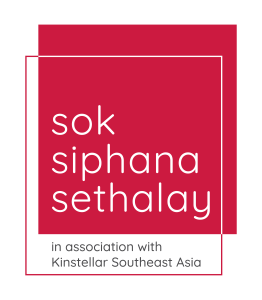Streamlining Dispute Resolution: Med-Arb at NCAC
With the increasing use of Mediation-Arbitration methods to resolve both domestic and international commercial disputes, the National Commercial Arbitration Centre (“NCAC”) has issued Instruction No. 287/NCAC/24 on May 24, 2024, regarding the Use of Disputes Resolution Mechanisms through Mediation-Arbitration (Med-Arb) of National Commercial Arbitration Centre (the “Instruction”) to enhance dispute resolution efficiency. Through this Instruction, NCAC provided guidance on resolving disputes using the Med-Arb mechanism.
UNDERSTANDING MEDIATION-ARBITRATION (MED-ARB)
1. The Purpose of Mediation-Arbitration
Mediation-Arbitration (Med-Arb) is a dispute resolution process in which parties attempt to resolve a dispute by mediation before submitting for final settlement by arbitration. The process begins with mediation, where a neutral mediator(s) assists the parties in reaching an amicable agreement. If mediation does not result in a settlement, the process then transitions to arbitration.
2. Benefits of Mediation-Arbitration
Med-Arb is particularly efficient because it allows parties to attempt a cooperative resolution through mediation while maintaining a fallback option of arbitration. This mechanism can save time and resources by avoiding prolonged arbitration if mediation is successful, or by quickly transitioning to arbitration if necessary.
3. Using NCAC’s Mediation-Arbitration Model Clause
To ensure effective dispute resolution through Med-Arb, NCAC has provided the Mediation-Arbitration Model Clause (Med-Arb Clause) with two options that parties may consider incorporating into their contracts, as follows
Option 1: Mediation-Arbitration Model Clause
(X) Any dispute arising out of or in connection with this contract, including any question regarding its existence, validity, performance or termination, shall be first, referred to mediation administered by the National Commercial Arbitration Centre of the Kingdom of Cambodia in accordance with the Mediation Rules of National Commercial Arbitration Centre (NCAC Mediation Rules) being in force at the time of commencement of mediation, and by reference in this clause, the NCAC Mediation Rules are deemed to be incorporated as part of this contract. The commencement of mediation shall not prevent any party from commencing arbitration in accordance with clause (Y) below.
(Y) Any dispute arising out of or in connection with this contract, including any question regarding its existence, validity, performance or termination, shall be referred to and finally resolved by arbitration administered by the National Commercial Arbitration Centre of the Kingdom of Cambodia in accordance with the Arbitration Rules of the National Commercial Arbitration Centre (NCAC Arbitration Rules) being in force at the time of commencement of arbitration, and by reference in this clause, the NCAC Arbitration Rules are deemed to be incorporated as part of this contract.
The seat of the arbitration shall be [Phnom Penh, Cambodia].
The Tribunal shall consist of ______________arbitrator(s).
The language of the arbitration shall be ______________.
Parties may consider the following additional provisions:
1. Language(s) of mediation
The language(s) of the mediation shall be [choose the language(s)].
2. Place of mediation
The place of the mediation shall be [Phnom Penh, Kingdom of Cambodia].
3. Governing Law Clause
This contract is governed by the laws of ______________.
Option 2: Mediation-Arbitration Model Clause
(X) Any dispute arising out of or in connection with this contract, including any question regarding its existence, validity, performance or termination, shall be first, referred to mediation administered by the National Commercial Arbitration Centre of the Kingdom of Cambodia in accordance with the Mediation Rules of National Commercial Arbitration Centre (NCAC Mediation Rules) being in force at the time of commencement of mediation, and by reference in this clause, the NCAC Mediation Rules are deemed to be incorporated as part of this contract. If the dispute has not been settled in accordance with the NCAC Mediation Rules within [45] calendar days from the date of commencement of mediation or at any other time agreed by the parties in writing, disputing parties may commence the arbitration proceedings in accordance with clause (Y) below.
(Y) Any dispute arising out of or in connection with this contract, including any question regarding its existence, validity, performance or termination, shall be referred to and finally resolved by arbitration administered by the National Commercial Arbitration Centre of the Kingdom of Cambodia in accordance with the Arbitration Rules of the National Commercial Arbitration Centre (NCAC Arbitration Rules) being in force at the time of commencement of arbitration, and by reference in this clause, the NCAC Arbitration Rules are deemed to be incorporated as part of this contract.
The seat of the arbitration shall be [Phnom Penh, Cambodia].
The Tribunal shall consist of ______________arbitrator(s).
The language of the arbitration shall be ______________.
Parties may consider the following additional provisions:
1. Language(s) of mediation
The language(s) of the mediation shall be [choose the language(s)].
2. Place of mediation
The place of the mediation shall be [Phnom Penh, Kingdom of Cambodia].
3. Governing Law Clause
This contract is governed by the laws of ______________.
Keynotes:
The NCAC’s Med-Arb model clauses are designed to create an obligation to resolve disputes through mediation under NCAC Mediation Rules before initiating arbitral proceedings. In other words, once the parties have incorporated either of the above-mentioned Med-Arb model clauses, mediation is no longer an option but rather an obligation of the parties to settle their dispute before referring the same to arbitration. The differences between the two Med-Arb model clauses are as follows:
- Option 1 is intended for scenarios where parties may need to expedite the resolution process by moving quickly to arbitration if mediation does not resolve the dispute.
- Option 2 is clearer and time-bound, as the parties may not initiate arbitration proceedings until the period of dispute settlement through mediation has expired.
Both options provide a Med-Arb Model Clause, but the choice between them depends on the parties’ preferences for flexibility or a more defined process. If these model clauses do not fit your needs and you are considering amendments, it is advisable to seek legal advice beforehand.
Contributing Authors:
Author Name 1:
Eszter PAPP
Senior Foreign Counsel
+855 12 278 920
Author Name 2:
Meanfong LY
Associate
+855 92 227 732
[Disclaimer: The information provided herein is for the reader information only and is not intended to offer any form of legal advice. Always obtain formal legal advice from qualified legal counsel with respect to this matter]





